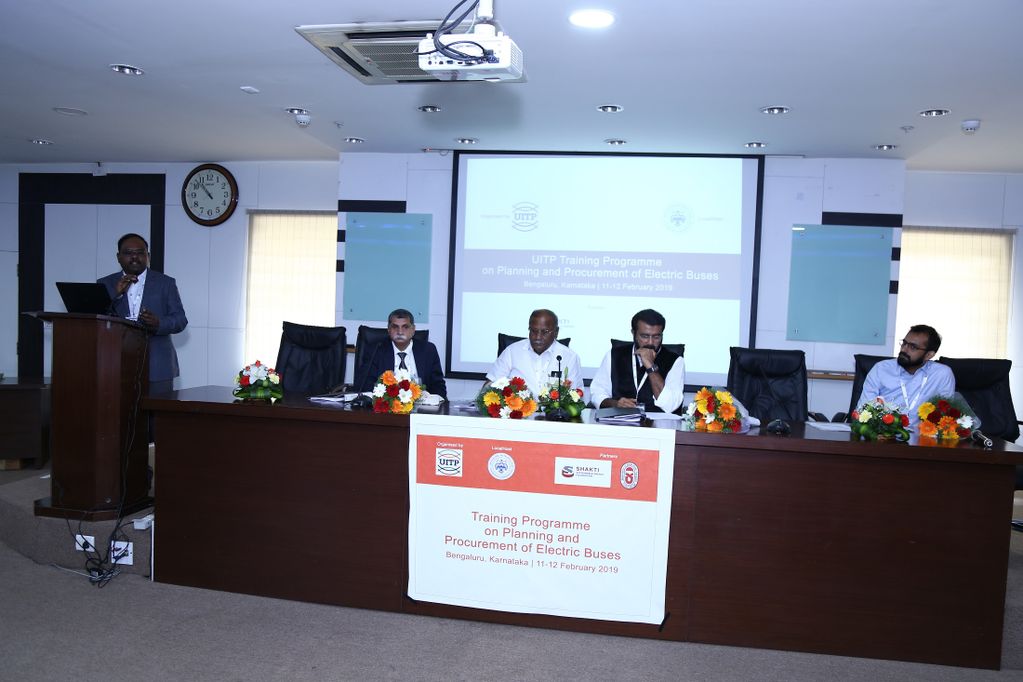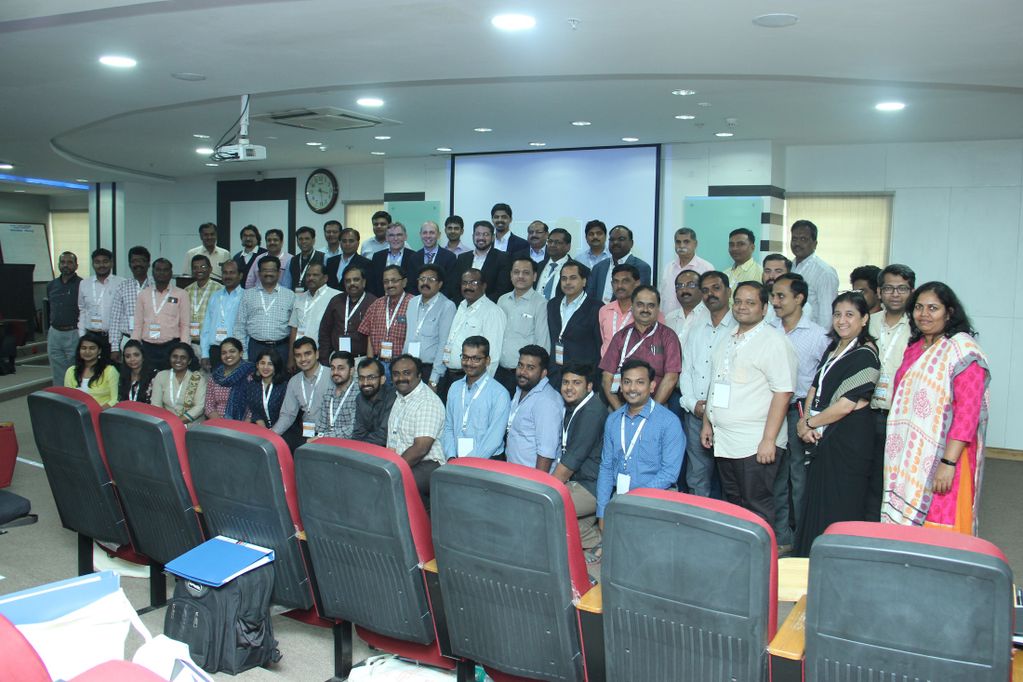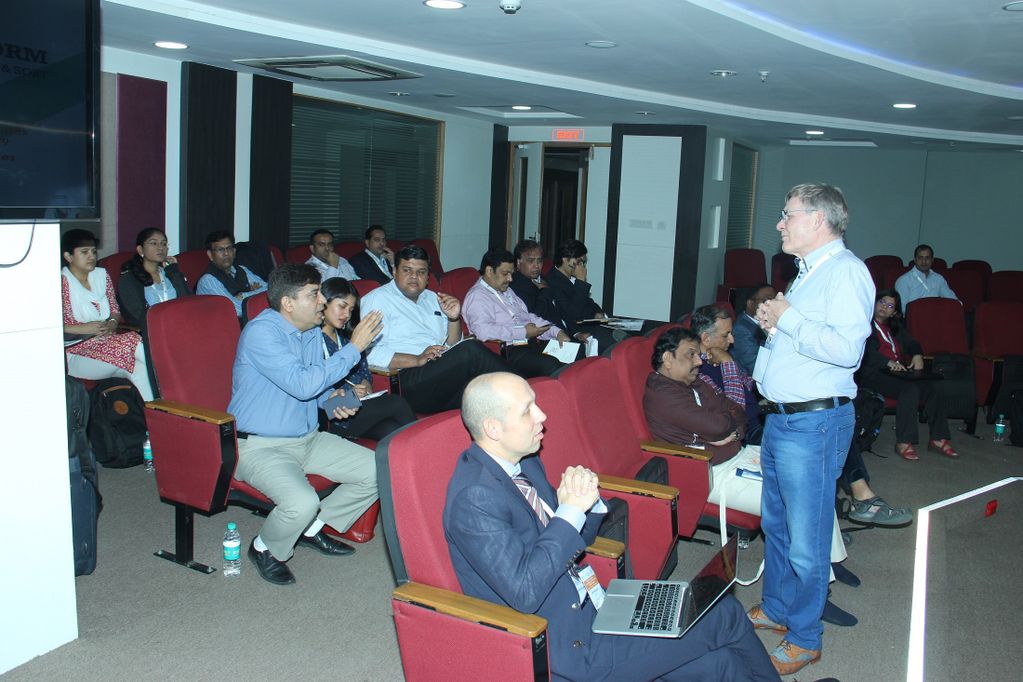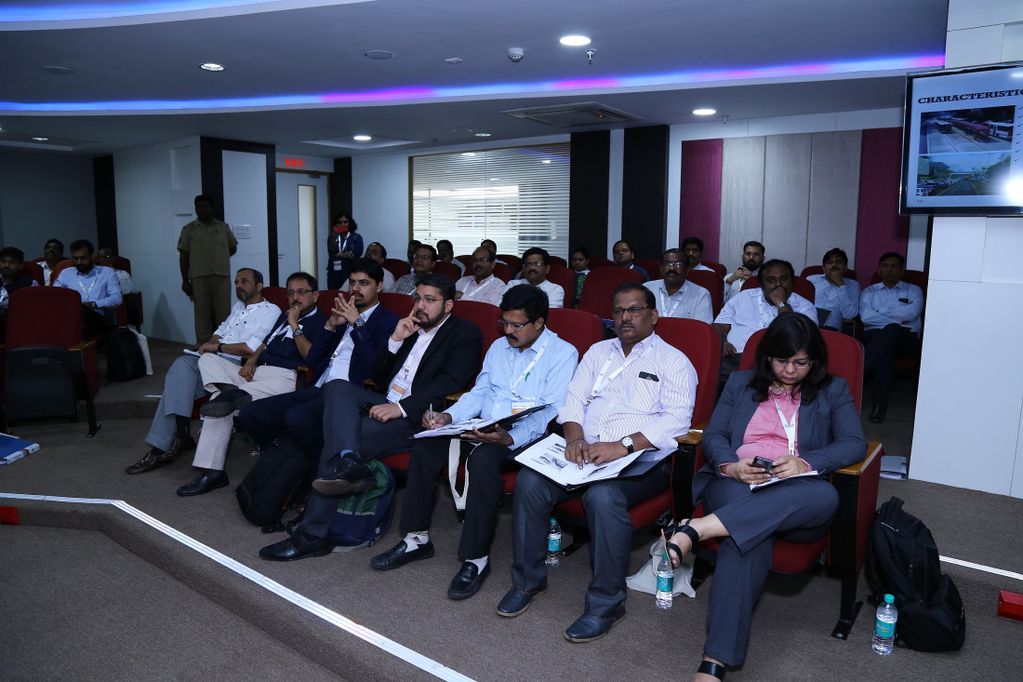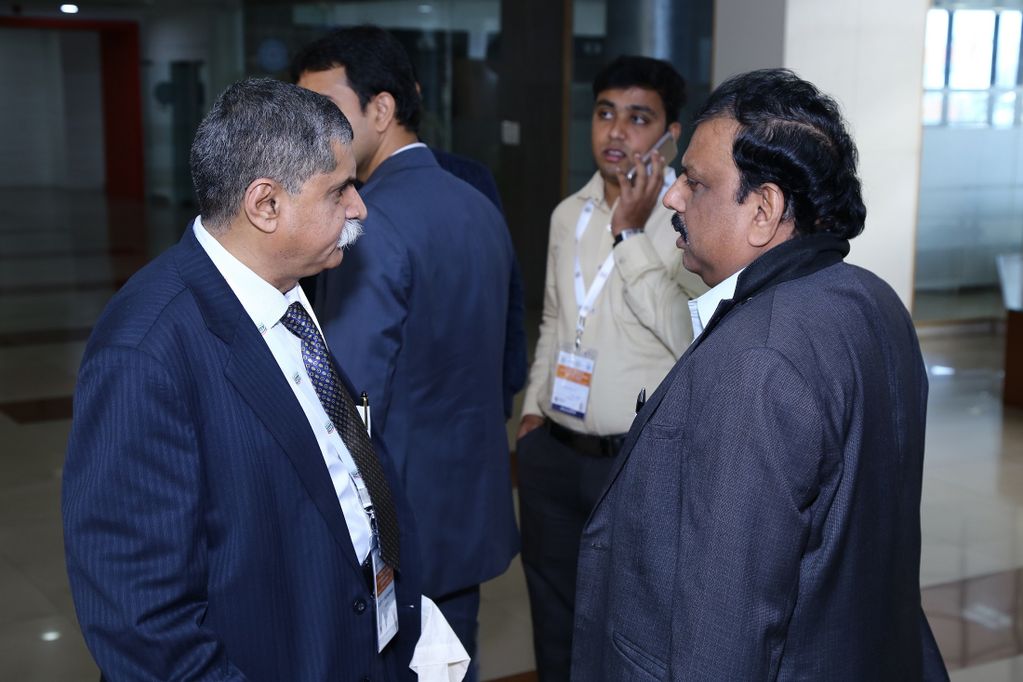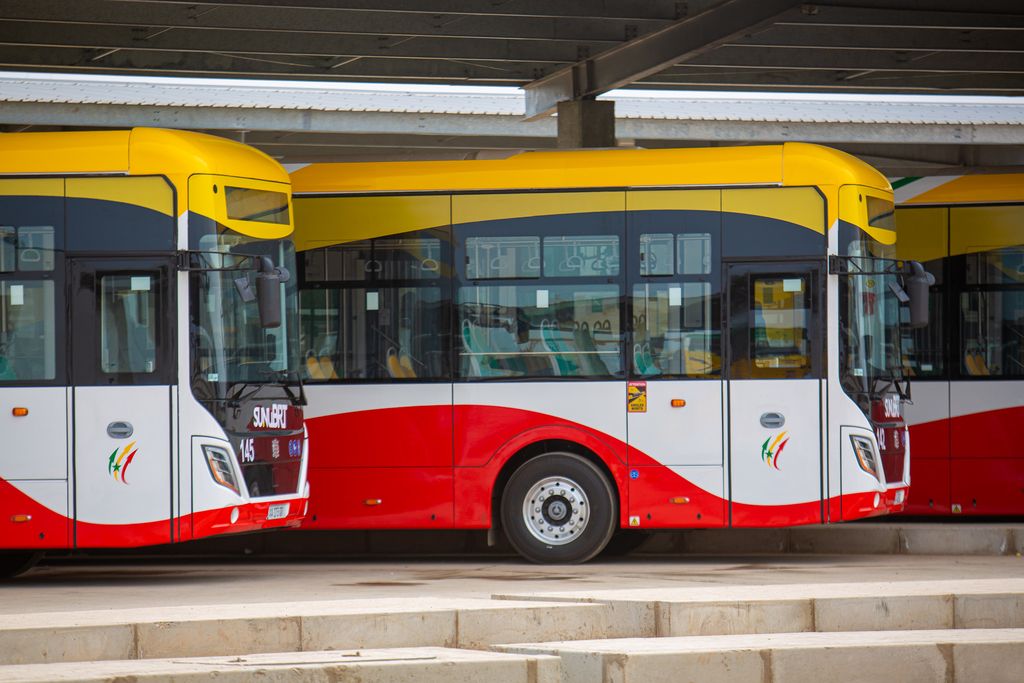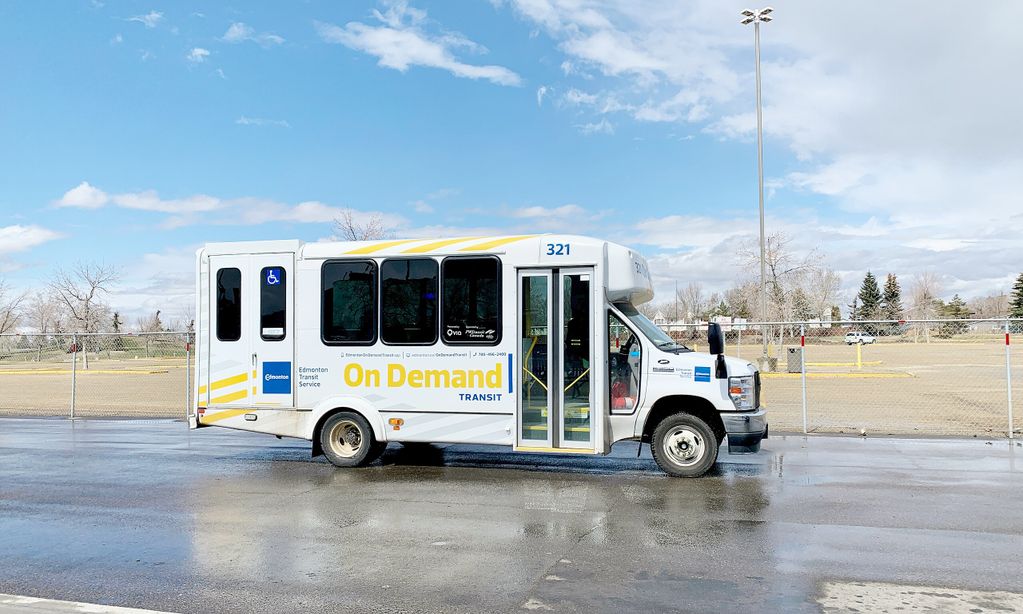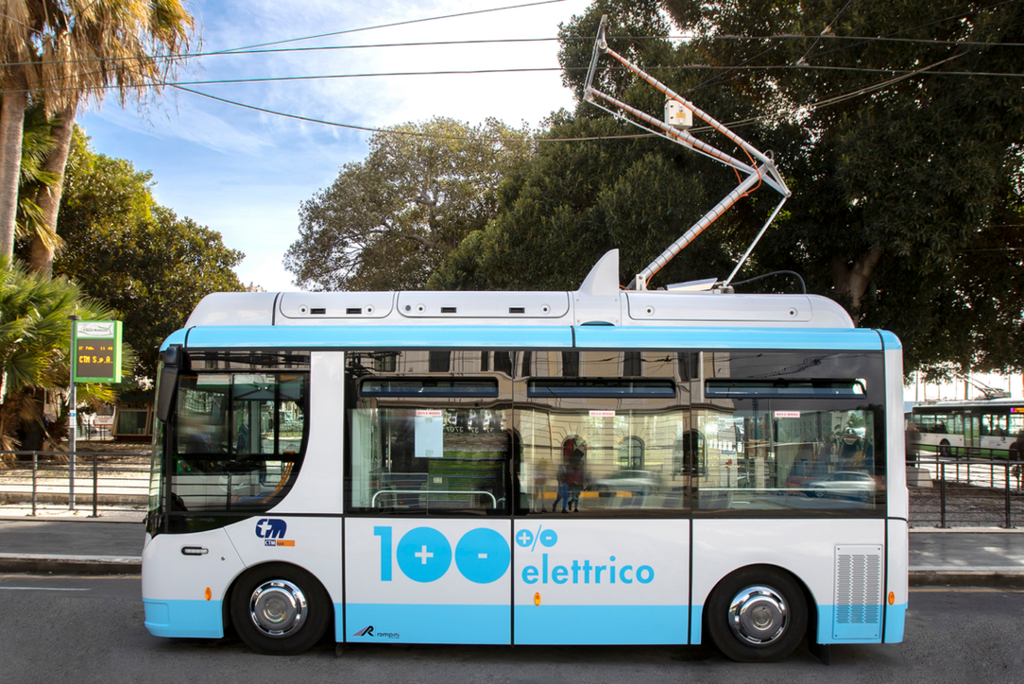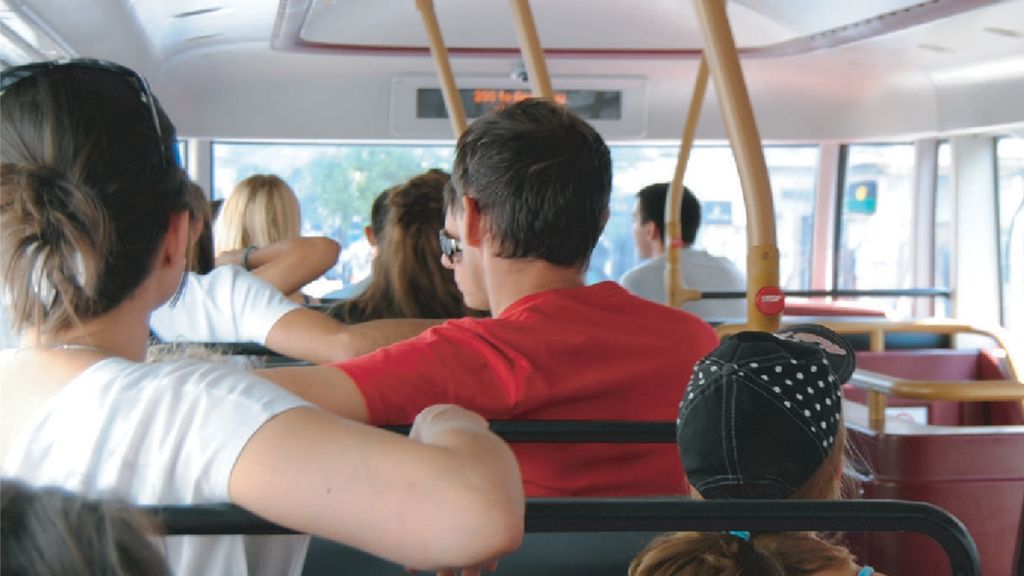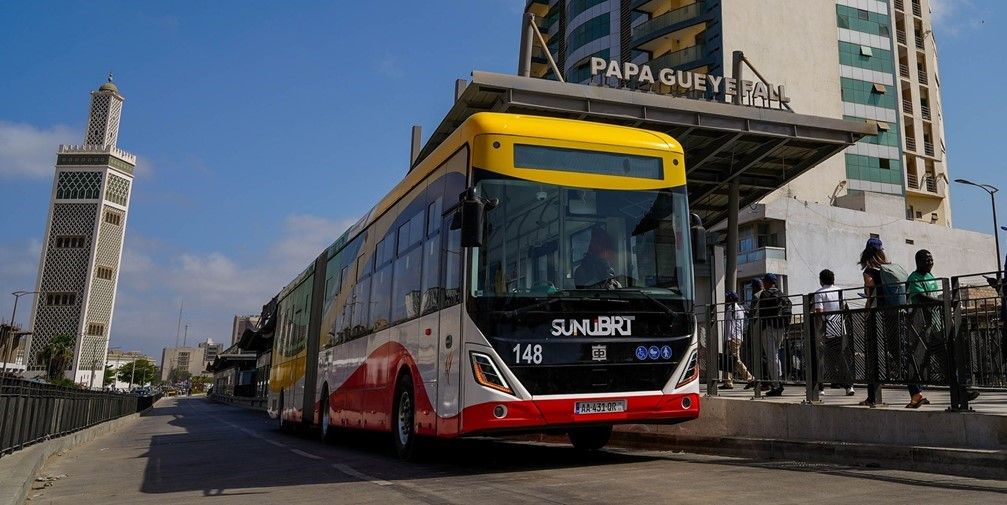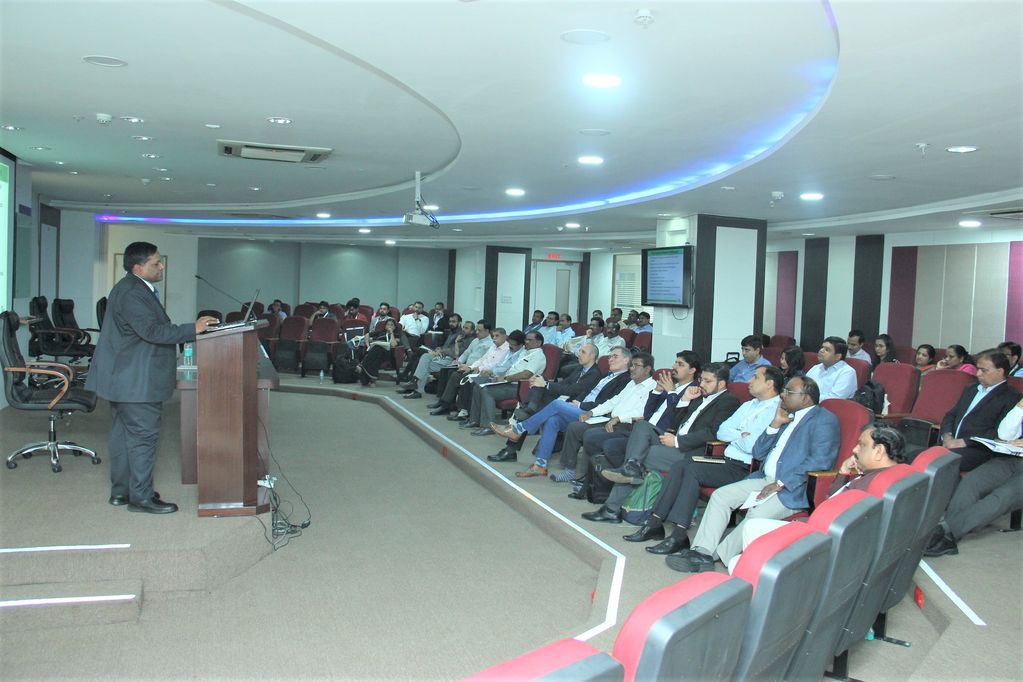
UITP India conducts training program on planning and procurement of electric buses
About the training
Indian cities are pursuing ambitious plans to introduce electric buses into their fleets, with support from Government of India’s (GoI) Faster Adoption and Manufacturing of Electric Vehicles (FAME) scheme and other state and city level schemes. Cities are faced with numerous challenges during the course of planning and procurement of these electric buses. Towards addressing some of these challenges, International Association of Urban Transport (UITP), supported by Association of State Road Transport Undertaking (ASRTU) and Shakti Sustainable Energy Foundation (SSEF) organised a training program on ‘Planning and Procurement of Electric Buses’ in Bangalore between February 11 and 12, 2019. The event was hosted by Bengaluru Metropolitan Transport Corporation (BMTC).
The training programme brought together more than 60 participants representing 30 organisations comprising of State Transport Undertakings, Special Purpose Vehicles (SPVs) managing city buses, manufacturers, think-tanks and consultants. Indian and International experts with extensive experience in electric bus sector delivered lectures on a wide range of planning and procurement issues. Mr. Jen Fongers (Fongers Folio B. V., Netherlands), Dr. Ray Minjares (ICCT), Dr. Nikit Abhyankar (LBNL) and Mr. C K Goyal (DIMTS) together covered the many relevant topics
Topics covered in the training
- Different configurations and innovations in electric bus technology and various case studies across the world
- Techno-economic analysis of electric buses
- Comparison between alternative soot free bus technologies
- Various concepts in tender procedure, different types of business models and strategies for bus procurement, key areas for tender harmonisation, various tender evaluation methods and risks management involved in tender process.
- The key factors and guidelines to be considered for establishment of charging infrastructure
- Concepts on outright purchase model and Gross Cost Contract (GCC) model
- Operational planning challenges in electric bus implementation like surplus fleet requirement to provide equivalent diesel bus service
- Charging infrastructure planning for electric buses
- Barriers faced and proposed solutions for the implementation of 1,000 electric buses in Delhi
The program covered discussion on the recommendations for the upcoming phase II of the FAME scheme. Some of the key points highlighted by the audience are
- City selection: The level of pollution in the city and previous efforts towards implementing electric buses should also be considered while subsidy allocation
- Subsidy criteria: The energy efficiency of the bus/ battery needs to be a key parameter along with the size of the battery in deciding the quantum of subsidy
- FAME II should also allocate a certain amount of subsidy for research, development and innovations for the electric bus technology in addition to implementation subsidies
- Various Public Sector Undertakings (PSU) can play an active role in providing infrastructure for electric bus deployment. For example NTPC limited (India) is currently supporting Bhopal Smart City to provide charging infrastructure.
- Government of India may provide capital subsidy for fixed assets like buses, charging infrastructure etc. while the State Governments can provide reciprocal subsidies through lower tariff on electricity to reduce operating cost of the electric buses
- In addition to the upfront capital subsidy, making low interest financing available to cities is likely to scale up electric bus deployment sooner
- The charging infrastructure should ideally be developed as an interoperable system across bus manufacturers. However, the cost of switching between charging infra technologies may not be very high
Overall, the sessions generated active discussions among participants and addressed many apprehensions cities had on electric bus deployment. UITP will engage further on these topics by engaging with GoI to share the feedback received on the FAME incentive. The UITP Tender Structure document will also be used to provide guidelines to Indian cities for their future electric bus tenders.
Launch of working group
The International Council on Clean Transportation (ICCT) is leading a global effort on ‘soot-free’ buses that promotes low and zero emission city bus fleets. ICCT is partnering with UITP India on a three year project funded by the International Climate Initiative (IKI), Germany to accelerate India’s transition to soot-free and zero emission urban bus fleets. The project involves a long-term fleet transition plan for the Bengaluru Metropolitan Transport Corporation (BMTC) to be a 100% electric fleet based system. Since the objectives and findings of the work are consistent with National, State and City levels goals towards 100% electrification of public transport fleets, the project seeks to share learnings with a national audience and encourage peer to peer learnings on the topic.
Therefore, aNational level working group on ‘Electric buses for India’ was launchedon the sidelines of the training program. The working group comprises of various bus agencies across India as the key members with invited private members like manufacturers, NGOs etc. on a need-basis periodically. The group constitution and its framework is modelled based on the ‘Zero Emission Bus Resource Alliance (ZEBRA) formed in the USA and Chile. The ZEBRA alliance forms a venue for various operators to come-together to share best practices and key learnings from their electric bus efforts.
State Transport Undertakings (STUs) and Special Purpose Vehicles (SPVs) operating buses across various states in India have shown active interest in being part of the working group. As a first step, the group will focus on the current implementation of electric buses across the country and their performance evaluation. A comparative analysis will developed and shared at the National, State and City levels to inform the technology choices for upcoming electric bus tenders.
The working group will act as a knowledge sharing platform for various city bus agencies including but not limited to energy performance of implemented electric buses, exchanging notes on tendering structures and their bids and meet periodically to advance other opportunities. As a first step, the group agreed to exchange information with each other on the performance of the electric buses inducted through the FAME I scheme. The next working group meeting will be focussed on specific opportunities like tendering, operations planning, charging infrastructure etc. which will help accelerate e-bus deployments across India.
